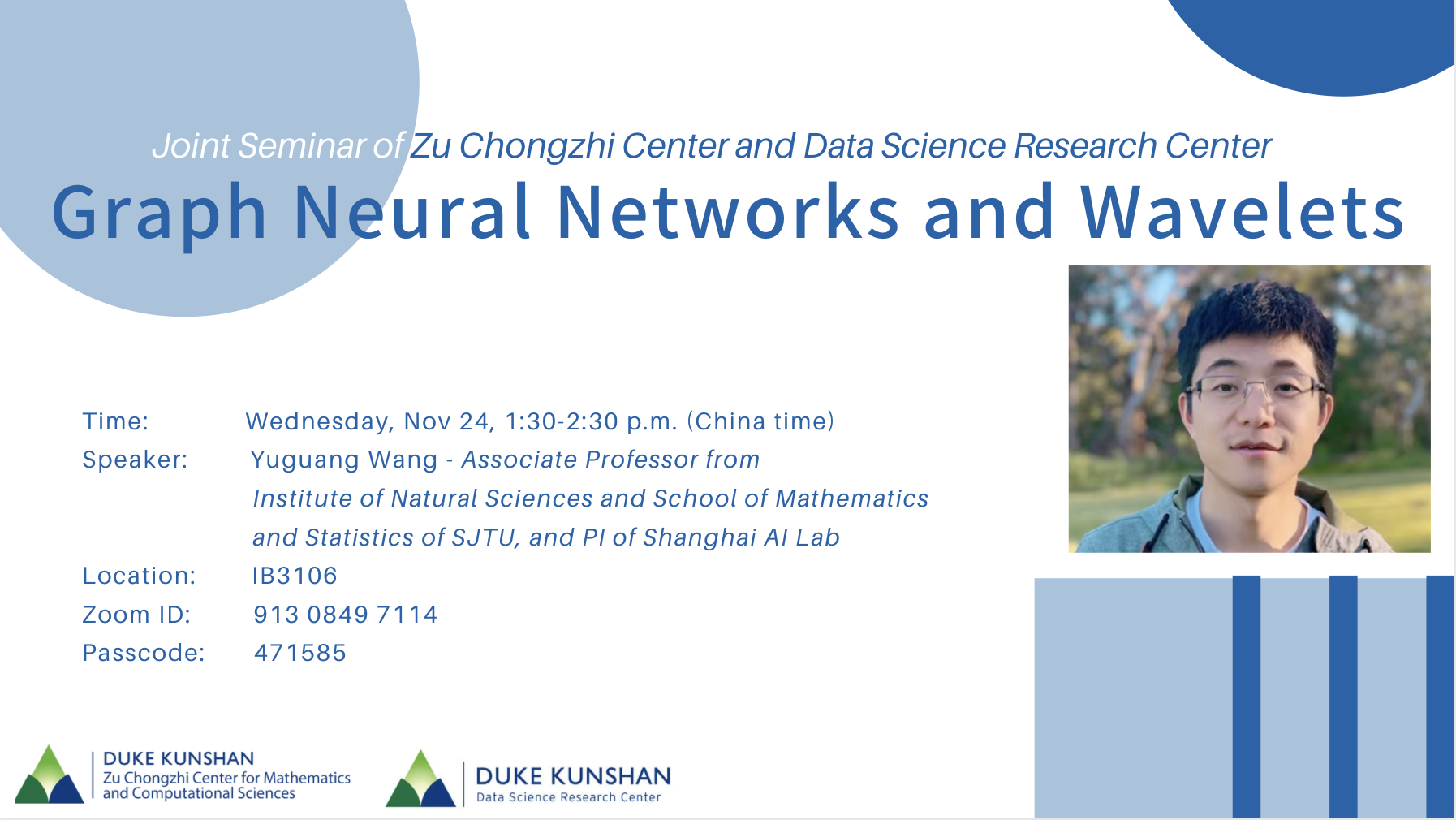Abstract:
Geometry is regarded as one of the promising avenues for advancing machine learning and deep learning in general. Data in biology, physics, computer graphics, social networks are usually not vectors in Euclidean space but objects on a manifold. The study of non-Euclidean data brings many challenges: the data is not only high-dimensional but also has an intricate structure of internal relation. The data geometry study has been a central topic in fields such as data science, topological data analysis, and more recently, graph neural network. The latter is an emerging field that explores how deep learning technology and theory can be generalized to non-Euclidean data. It provides a useful tool for AI drug discovery and 3D object shape analysis in self-driving due to its outstanding performance and a relatively simple network architecture. The study of graph neural network has become a global trend with people realizing its potential. This talk will introduce graph framelet systems and how framelet based signal processing enhances graph neural networks.
Bio:
Yuguang Wang is Associate Professor of Institute of Natural Sciences, and School of Mathematics and Statistics of Shanghai Jiao Tong University, and PI of Shanghai AI Lab. Before that, he is a research scientist in Max Planck Institute for Mathematics in the Sciences. He obtained his PhD from University of New South Wales in 2015 and since has been a long-term visitor at UCLA, Brown University and City University of Hong Kong. His research interests include signal processing, geometric deep learning, graph neural networks and applied harmonic analysis. He has published in top journals Applied and Computational Harmonic Analysis, SIAM Journal on Numerial Analysis, ACM Transactions on Mathematical Software, Journal of Machine Learning Research, Foundations of Computational Mathematics, and top AI conferences ICML and NeurIPS. He has been an editor for Frontiers in Applied Mathematics and Statistics, Guest editor for IEEE TNNLS, and Frontiers in Medicine.


